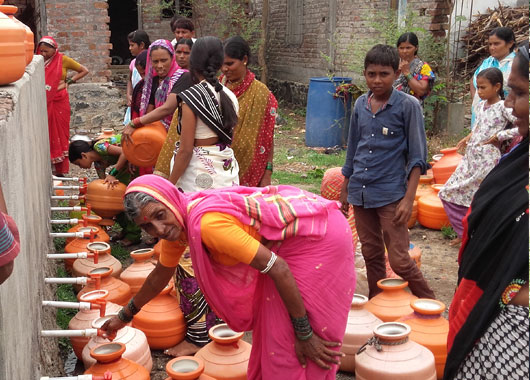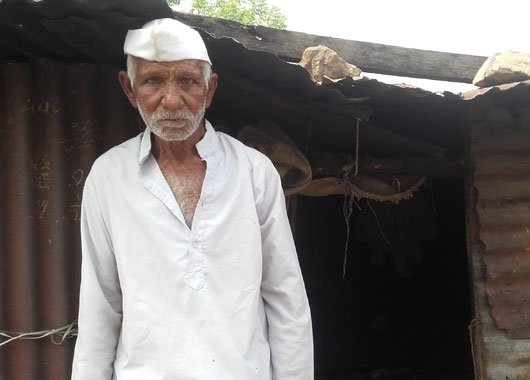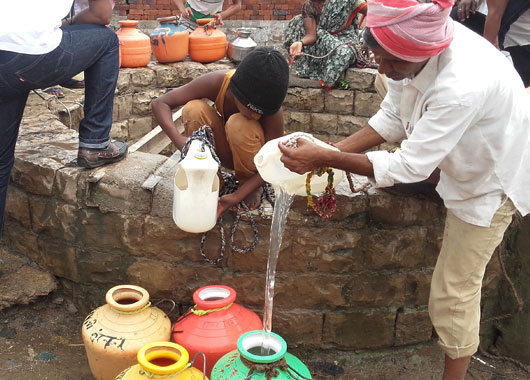
Field Story from Yudhisthira, RedR member from Odisha
Yudhisthira is a RedR member with over 20+ years of working in Humanitarian Response, Child-centered Community-based Disaster Risk Reduction, Child Protection and Education. Yudhishthira was deployed with the Drought Assessment team in Maharashtra.
In India, drought has always been a regular phenomenon. For instance, in 2014-15, India suffered a 12 per cent deficit in rainfall, followed by a 14 percent shortfall in 2015-16. As per the response filed by the Ministry of Agriculture and Farmers’ Welfare, the government of India, in the Rajya Sabha on the 29 April 2016, 266 districts across 11 states have been officially declared as drought-prone districts. As part of the assessment, he visited Marathwada’s drought-affected regions. During interaction with the villagers there, he met an elderly man, Prasanna, who was in his sixties.
Prasanna lived in an old broken down house and had no lands or assets and had an eye problem that affected his vision. He had no caregivers too. It was observed and shared that Prasanna received an old age pension from the National Pension Scheme and that he was also the beneficiary of a government scheme which provided subsidized rice and wheat in drought-prone areas. Though he did face some difficulty in collecting water from tankers, his neighbours and young people of the village helped him collect water as well.
This chance conversation reminded Yudhisthira, in contrast, of an elderly from the drought-prone district of Bolangir in Orissa. Bolangir was one of the areas perennially stricken with drought which had gained notoriety in those times for hunger and starvation deaths. Matha and Khamari had two sons, one had migrated to the city in search of a job and abandoned them.


The second son became an ascetic thus leaving the old couple to fend for themselves. In his younger days, Khamari was always requested to join celebrations in his village for skill in a native art form of horse-dancing. But nowadays they rarely had people visiting them. In the year 2001, Yudhishtir came to know that Khamaari and Matha were bedridden and at risk of serious health problems unless quickly treated.
They had already submitted an application for the National Old Age Pension that was sanctioned by the Government a month ago. At that time, it was mandatory for a person to go to the Block office and receive their first sanctioned amount only. After this had been done, the Block office would consequently send the monthly pension amount through the post. Because of his condition, Khamari could not travel to the Panchayat Office to collect the first sanctioned amount. Yudhishtir took it upon himself to sort out the issue by getting the Block Development Officer to visit the couple in their home to get the sanction for the old age pension.
The amount was meagre it helped the old couple to afford medical assistance and more importantly gave them the confidence and hope of a better tomorrow. Slowly and steadily they were able to recover from their ailments. Matha and Khamari’s life improved by one simple act of making sure they received their entitlement.
These experiences have made Yudhisthira realize the importance of ensuring people receiving their entitlements as they have the potential to give hope and the feeling of being cared for to an individual. Yudhisthira believes that as development workers our primary role is to ensure fulfillment of rights and entitlements of the people.

